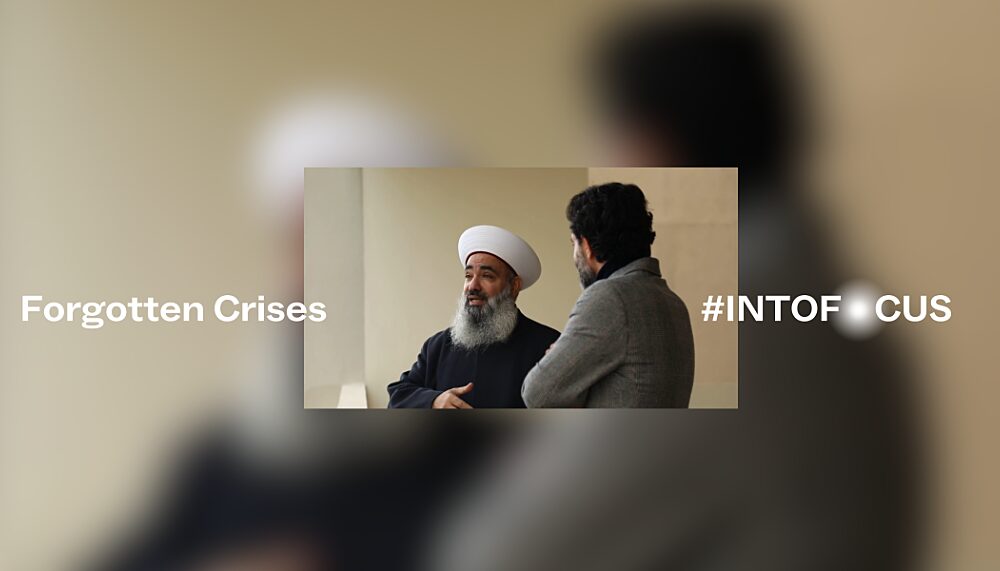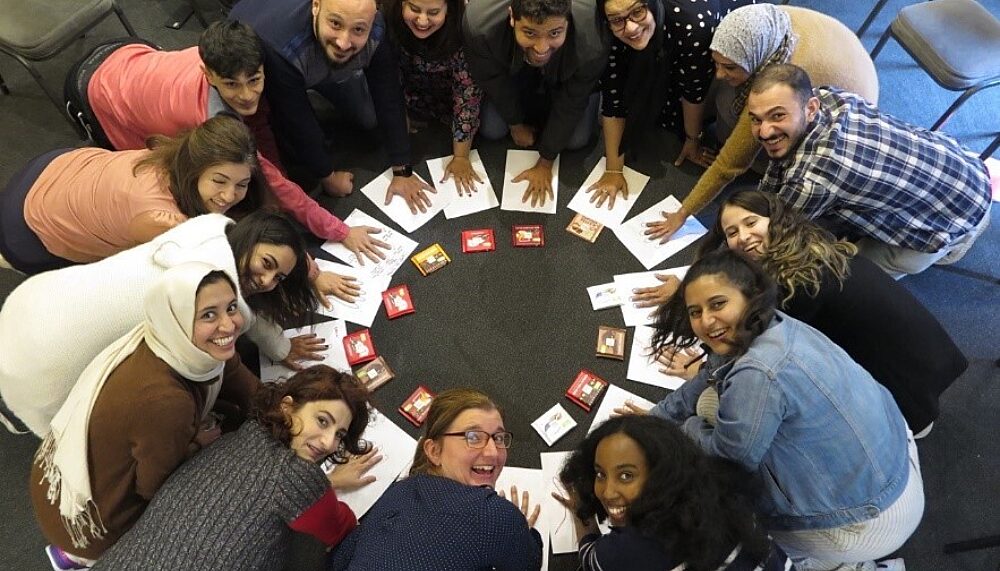FEATURE | 8 May 2023
Time to put Lebanon’s crises #IntoFocus
Together with 30 NGOs we shed light on “forgotten crises”

Corruption and political as well as sectarian divides have plunged Lebanon into unprecedented crises. Read how we shed light on these "forgotten crises".
In 2022, over 324 million people around the world needed humanitarian assistance. Most of them were affected by crises that hardly made the news. Too often international attention – and support – focuses on conflicts that grab headlines, while other crises fall off the radar.
Lebanon suffers from these “forgotten crises”.
Let's bring forgotten crises worldwide #IntoFocus
We joined forces with 30 NGOs to draw attention to "forgotten crises". The campaign, which ran between 8- 14 May 8-14, focused on the crises in Bangladesh, Lebanon, and South Sudan.
But even after the campaign, you can help us bring attention to the crises in Lebanon and support our work:
- read the interview
with Luise Amtsberg, Germany’s Federal Government Commissioner for Human Rights Policy and Humanitarian Aid,
- support our work towards a more stable and peaceful future for Lebanon, and
- follow us on social media (Instagram, Twitter) and help us spread the word!
Decades of corruption as well as political and sectarian divides have plunged Lebanon into an unprecedented multitude of crises: Today, more than 80 per cent live in poverty and two million people face food insecurity.
Humanitarian assistance is critical for survival. But the root causes of these crises also need to be addressed. The Berghof Foundation supports the people in Lebanon to transform underlying conflicts and work towards a peaceful future for the country.

By bringing people together, we aim to advance the development of short-term policy solutions to elevate the crises as well as form a long-term vision for the country. For example, we create the space for influential political figures to discuss much-needed national reforms, we organise funding for projects that advance the country’s reconciliation process, and we support local dialogue initiatives that foster trust within their communities.
Help us keep up our work to de-escalate social tensions and foster inclusive dialogues in Lebanon.
For the #INTOFOCUS campaign, we spoke with our colleagues and partners in Lebanon.
Listen to their stories and find out more about Lebanon’s “forgotten crises” below.
For the #IntoFocus campaign, we interviewed Sheikh Mohamad Abou Zeid, imam, judge, and passionate peacebuilder, about his work. We also spoke with Amani Geha, who is a journalist as well as a social media and political activist, and with our colleague and Berghof’s representative in Beirut Feras Kheirallah about Lebanon’s forgotten crises.
Watch the videos to hear their stories!
A downward spiral into economic and humanitarian crises
Years of austerity, corruption, and negligence culminated in 2,750 tons of ammonium nitrate exploding at the port of Beirut on 4 August 2020. 300,000 people lost their homes. More than 200 people were killed, and 7,000 injured. Our colleague Feras was one of them:
Yet Lebanon’s economic crisis began much earlier. Foreign investors transferred US dollars - used to pay for vital imports such as wheat and oil - out of Lebanese banks in response to the war in Syria. Following government attempts to add new taxes to offset the national debt, nationwide protests erupted in October 2019 denouncing corruption, high levels of unemployment, and the collapse of public services.
In the months that followed, the Lebanese pound started to decline. Since 2019, it lost 98 per cent of its value. This, alongside an electricity shortage caused by mismanagement and corruption and a massive exodus of skilled workers, has further contributed to a crumbling healthcare sector. The provision of public services has now reached devastatingly low levels, with public schools largely shut for the last three years.
Support our work in Lebanon towards long-term solutions for the catastrophic situation in the country.
Sectarian divides holding the country back
To overcome the economic crisis, reforms are urgently needed. Yet sectarianism – which is deeply ingrained in Lebanese society – upholds tensions between the country’s different political and religious communities. It is a key obstacle to political reform. The country is at a political standstill. Internal divisions have prevented the election of a new president and thus the formation of a new government since 2022.
There is also the risk of renewed violence. On 14 October 2021, clashes broke out along the former civil war front line between Christian and Muslim Shia areas in Beirut. Many Lebanese were afraid the civil war that ravaged the country from 1975 to 1990 could return.
Into a more hopeful future
But we also see signs of hope: a large number of members of emerging political movements won seats in the parliament for the first time in the 2022 elections. This is a success for the civil society activists, who took to the street in 2019 to call for an end of the sectarian system.
The only way to get the country out of the current catastrophic situation and to achieve sustainable change is through dialogue with the inclusive participation of all parts of society.
Germany, the EU, and the international community should not avert their attention from the ongoing crises in Lebanon. Beyond humanitarian aid, investment in long-term dialogue and peacebuilding efforts are needed to provide hope for the country.
You can support the creation of exchange fora about political reforms, overcoming past grievances, and an active civil society by donating to our work.
This article was updated on 22 May 2023 to reflect that the campaign had ended.
Media contact
You can reach the press team at:
+49 (0) 177 7052758
email hidden; JavaScript is required


